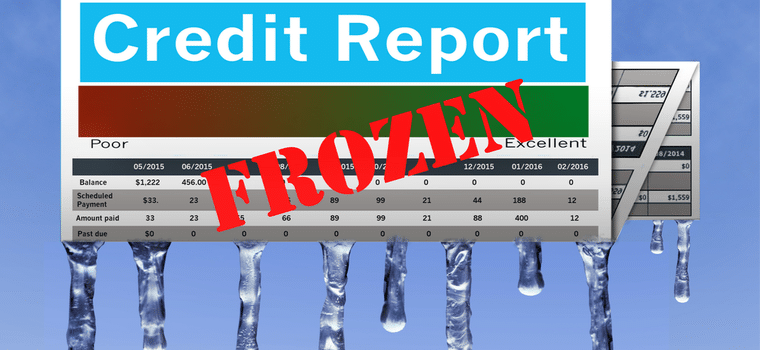Having unlimited access to your credit reports is a great thing. You can keep a look out for suspicious activity or misinformation. However, if you find that your identity has been compromised, you’ll need to take steps to protect your accounts.
Here’s everything you need to know about freezing your credit to safeguard your short- and long-term financial future.
How a Credit Freeze Works
When you put a freeze on your credit reports, you’re essentially blocking a new lender from accessing your credit-related information unless you give permission. Lenders you’re already working with will still have access to your reports, and you personally can still access your own information.
Reputable lenders won’t issue credit if a credit report is locked, preventing a new account from being opened in your name. However, the word “reputable” is key here.
Not all lenders see the need to conduct a credit check before issuing credit, which means that a credit freeze isn’t a 100% fail safe way to protect your information.
In addition, a credit freeze won’t protect from account fraud that’s already taken place, or identity theft related to stolen information from tax refunds, pensions or medical records.
Requesting a Credit Freeze
To request a credit freeze be placed on your accounts, contact each of the three major credit bureaus online, by phone or by mail. (ScoreSense members can get information for requesting a freeze from Experian, Equifax and TransUnion here.)
You’ll be asked to confirm your identity, including your Social Security number, birthdate and address.
Each credit bureau will give you a password or a personal identification number that you’ll need to have ready when you want to remove the freeze in the future.
You can freeze your credit indefinitely or for a specific time period. Either way, freezing your credit doesn’t have an impact on your credit scores. And freezing your credit is free with all three bureaus.
Removing a Credit Freeze
Your credit freeze stays in place until you request otherwise. To have it removed, contact the credit bureaus just as you did before, either online, by phone or by mail.
You can also request the freeze be removed temporarily, which is beneficial if you’re applying for a mortgage, loan or a job where the employer conducts a credit check.
Keep in mind it takes time to remove a credit freeze. If you request the lift by mail, it can take up to three business days from the date it was received.
Thawing a Credit Freeze
If you want a certain creditor or lender to have access to your account, you can thaw your credit freeze for them only. Contact the credit bureau and provide the name of the creditor or lender. Do this in advance because, if requested by mail, it can take three days to have the thaw activated. Thaws requested online or by phone can be activated the same day – often within the hour.
Stay Alert With Monitoring
Even with a credit freeze, thieves can still commit fraud with your accounts that are already open and active. This is why credit monitoring and alerts are critical to protecting your scores.
Credit alerts serve as a warning bell about account activity, informing you about new credit inquiries, account openings, changes to your personal information and more. After all, the sooner you get alerted to suspicious activity, the sooner you can take action.
Stay on top of changes to your credit reports and scores, and consider requesting a freeze if you see anything out of the ordinary.




